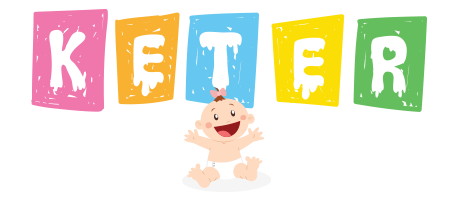
From birth, children are constantly learning about their own world through their senses, observations, and interactions. Through this exploration, they are rapidly developing their ability to interact with the world by improving their cognitive, language, physical, and socioemotional skills. Since these are all intertwined within your baby and developing at the same time, you will start to notice overlap between the categories.
Cognitive Development
Your baby’s cognitive development can be observed through his or her eyes and preferences. Amazingly, your baby is already making decisions! He or she prefers the mother’s voice, human faces and eyes, striking visual displays, and sweet-tasting liquids. You might even see your baby recoil from an unpleasant smell. This shows your baby’s senses are developing rapidly, and he or she can even distinguish between bad and good smells and tastes. Your baby may also start to investigate his or her own body more, specifically the hands and fingers. In addition, you can get your baby’s curious attention by slowly moving objects about 12 to 15 inches away from his or her face from one side of his or her field of vision to the other
Language Development
Your baby might not be able to speak yet, but will certainly show preferences for certain sounds, like music or familiar voices. Your baby may even turn in the direction of a familiar voice, like your own! To communicate with you, your baby will use sounds and movements. For example, if your baby is rooting or making sucking motions, he or she might be trying to ask you to feed them. Crying might be another way that your baby alerts you to hunger. There are different types of infant cries, and the majority do not mean your baby is in distress. Babies are more in tune with emotions and your mood than you may think, so do your best to stay calm. This relaxed mood will help reassure your baby that everything is okay and you are there for him or her.
Physical Development
Your baby is born with a variety of reflexes such as sucking, swallowing, coughing, gagging, grasping, blinking, and startling. A reflex is an involuntary movement that always occurs in response to a certain type of stimulation, and baby reflexes tend to fulfill basic needs for survival.
Test them out! If you stroke your baby’s cheek, he or she will likely turn in the direction of your touch and open his or her mouth, as if in preparation for feeding: the rooting reflex. If you firmly stroke the bottom of your baby’s foot, your baby’s big toe will bend backwards while the others spread out: the Babinski reflex. If you lower your baby very quickly to give the feeling of falling, your baby will lift and fan his or her arms out before curling into a fetal position, just like an adult startle response: the Moro reflex.
One more example: when you place an object, such as your finger, in your baby’s palm and stroke it, his or her fingers will grasp it. It will be a few months before your baby learns to crawl or sit up, and so your presence for your baby during these first few months is crucial. You’ll notice your child may tend to keep their hands clenched most of the time. It is also normal if you see your baby’s eyes cross or if they don’t seem to be able to coordinate their hands and eyes. Though he or she is developing quickly, these coordination skills must be developed over time.
Social and Emotional Development
Your baby most likely isn’t going to have a booming social life. In fact, your baby will most likely sleep around 20 hours a day! Wondering why you are still so tired? Your baby does sleep quite often, but he or she will do it in a series of short sleeping periods. Though your baby does not have a lot of time to be social, don’t count him or her out. Your baby is already learning to interact with you and other people. In one classic developmental study, newborns cried in response to the sound of other infants crying. This shows that even in the first few days of life, infants may be able to “empathize” with other infants. Another study showed that newborns prefer to look at faces that are gazing directly back at them, demonstrating that they already know that where other people are looking might be important. Even as a newborn, your child will prefer to hear your familiar voice compared to a stranger’s voice, and to share eye contact with you.
Conclusion
As you learn about the steps of child development, remember that all infants are different, and will develop at their own unique pace. There will be variability in when your child reaches every point of the developmental timetable, and in what order: if your neighbor’s baby might have started sitting up at 5 months while your 8-month-old still can’t, or if your baby learns to walk before learning to crawl, that is not necessarily a cause for concern! In fact, reaching a milestone earlier or later generally does not predict whether an infant will be more advanced or delayed later in life, and it is not unusual for infants to regress at a skill from time to time either.
